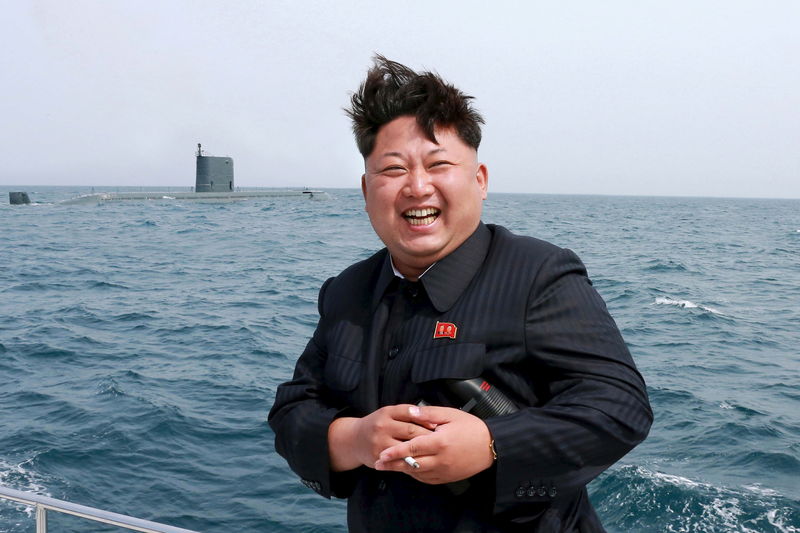By James Pearson (LON:PSON)
(Reuters) - North Korea is evading international sanctions with a sophisticated network of overseas companies, enabled partly by its continued access to the international banking system, says a forthcoming United Nations report seen by Reuters.
North Korea is under heavy U.N. sanctions and a strict arms embargo designed to impede the development of its banned nuclear and missile programmes. The U.N. panel of experts, which produced the 100-page draft report, was created to investigate reported infringements of those sanctions.
“Designated entities and banks have continued to operate in the sanctioned environment by using agents who are highly experienced and well trained in moving money, people and goods, including arms and related materiel, across borders,” the report says.
U.N. member states should “exercise heightened vigilance” over North Korean diplomats engaged in commercial activities, it says, because some may be providing financial support to illegal networks.
North Korea "is flouting sanctions through trade in prohibited goods, with evasion techniques that are increasing in scale, scope and sophistication," the report says.
It details a previously unknown interdiction of North Korean-made military communications equipment destined for Eritrea in July last year.
The interdiction was the second time North Korean military equipment bound for Eritrea had been intercepted, indicating an ongoing arms trade between the two countries, the report said.
The seized equipment, part of an air shipment, included 45 boxes of battlefield radios and accessories, the report says.
The radios were manufactured by a Malaysia-based front company called “Glocom”, which is controlled by the Reconnaissance General Bureau, the sanctioned North Korean intelligence agency tasked with overseas operations and weapons procurement, the report says.
INTELLIGENCE AGENCY
The report identifies two North Korean trading companies which, according to an unidentified U.N. member state, are linked to sanctioned entities, including the Reconnaissance General Bureau.
The report also outlines North Korea’s use of the financial system to pay for its sanctioned operations.
“Behind these illicit activities is the continued access of the Democratic People’s Republic of Korea to the international banking system,” the report says, using North Korea’s official title.
“Despite strengthened financial sanctions in 2016, the country’s networks are adapting by using greater ingenuity in accessing formal banking channels,” the report said.
In cases where financial access is more restricted, North Korean agents use bulk cash and gold to circumvent the financial system entirely, and at times use foreign citizens as middlemen and facilitators.
The report says North Korea continues to export banned minerals despite last year's sanctions putting a cap on coal exports, a key source of hard currency for the state’s nuclear and missile programmes.
China has said it would ban coal imports from North Korea until the end of the year. On Thursday, North Korea issued a rare reproach of China, its main diplomatic backer, over the ban.

The U.N. report says enforcement of sanctions against North Korea "remains insufficient and highly inconsistent" and calls for additional measures to address shortcomings.